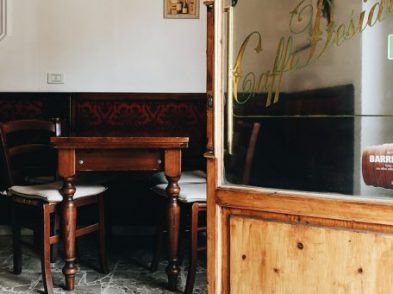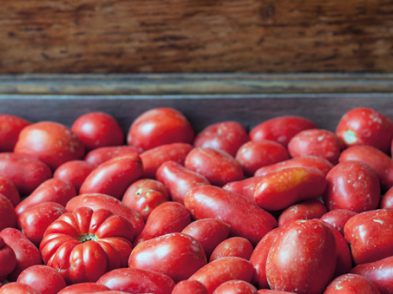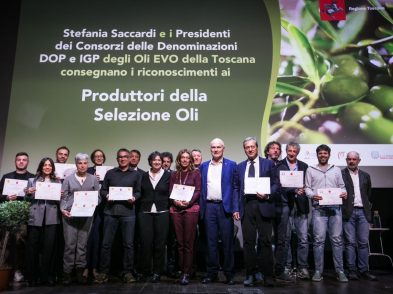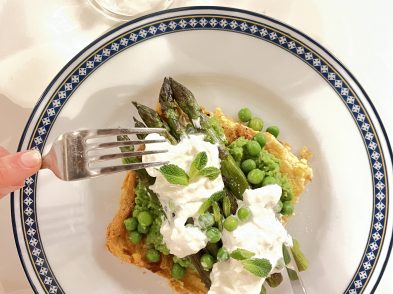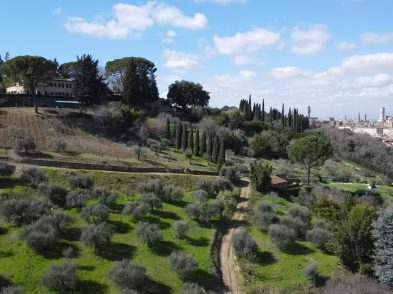She has been called the ‘original domestic goddess,’ but Elizabeth David should be given much more credit than that. The celebrated English food writer and cookbook author would have turned 100 years old last month, and yet her witty and often passion-fuelled writing is as valid today as it was 50 years ago.
It is easy in the days of celebrity chefs to underestimate how much Elizabeth David contributed to changing the attitudes of British and American home cooks (and professional cooks) about food, ingredients and eating.
It is thanks to David that generations of English speakers on either side of the Atlantic were introduced to Mediterranean cuisine at a time when cooking was generally a soulless affair, and society was a great deal less interested in and less knowledgeable about the pleasures of good food and good ingredients.
As her compatriot and fellow food writer Jane Grigson explains, ‘Basil was no more than the name of bachelor uncles, courgette was printed in italics as an alien word, and few of us knew how to eat spaghetti or pick a globe artichoke to pieces … Then came Elizabeth David like sunshine, writing with brief elegance about good food, that is, about food well contrived, well cooked. She made us understand that we could do better with what we had.’
Born at the end of 1913, David studied art in Paris, becoming (though unsuccessfully) an actress, then leading an expat life, first in Greece, then Egypt, before returning to post-war England, where she found the food less than acceptable (‘unspeakably dismal’ was how she described it). It was, after all, a post-war society still rationing staples such as butter, cheese and meat (taken off the rationing list only in 1954).
David, meanwhile, was dreaming of the apricots, lemons, olives, almonds, rice and butter of the Mediterranean.
A self-taught cook, David wrote about real food, the genuine food traditions of the places where she had travelled and lived—France, Italy, Greece, Egypt and India. In her eight cookbooks and numerous articles for, amongst others, Vogue, Harper’s Bazaar, Gourmet and the London Sunday Times, she introduced English speakers to not only the colourful and fresh flavours and techniques of the Mediterranean but also the absolute pleasure of food and eating.
She fiercely protected the integrity of food and good ingredients, with many of these ever-witty articles collected in An Omelette and a Glass of Wine (1984) and its sequel, a posthumous anthology of David’s notes, letters and other writing that had not appeared in any of her published work, Is There a Nutmeg in the House? (2000). She goes into tirades about the shameful misuse of risotto and pizza as an ‘empty the fridge’ dish in British kitchens, the uselessness of the garlic press (she refused to sell them in the kitchenware shop that she opened in the 1960s), the under-use of nutmeg and the horrors of the stock cube.
Italian Food(1954), one of the first English-language books to document and accurately portray Italy’s regional cuisine, was produced after a year of research. David was called one of the ‘benefactors of humanity’ by the Observer for this book. In her usual, elegant yet no-nonsense approach, Italian culture, gastronomic history and the traditions behind the dishes feature as importantly as the recipes themselves.
When it comes to risotto, for example, David goes to much effort to put right the ways of English readers and recipe writers who had long been using the wrong rice to make a true risotto. Her lessons are punctuated with tips for her travelling readers, such as to eat risotto in Lombardy or the Veneto. ‘Don’t by the way, look for good risotti in Florence and Tuscany,’ David advises the unknowing tourist. ‘Tuscany cooks, at any rate in my experience, don’t know how to make a correct risotto any more than do French or English ones.’
She constantly reminds home cooks to keep things simple, to think twice before using ‘uncalled for mustard in the mayonnaise’ or a ‘redundant sprinkling of rosemary.’ When introducing the concept of crostini, she says, ‘They should, I think, remain simple and small. Enlarged to the size of Welsh rabbits [rarebits] or club sandwiches, they lose their point and their charm.’
Her books are a wonderful source of recipes, entertaining anecdotes and culture. Readers are instantly transported to a dreamy Mediterranean country town, sharing food with the locals. Her recipes are written in prose, rather than the more familiar style, a list of ingredients followed by method, and although her instructions are often brief, they never let you down.
‘Soak ½ lb of beans overnight. Drain them, put them in the jar with half an onion, a piece of celery, a clove or two of garlic, two or three fresh leaves of sage,’ begins her recipe for Fagioli alla fagiolara Toscana (better known perhaps as fagioli al fiasco), written in 1966. ‘They are at their best when freshly cooked, and eaten almost before they have cooled,’ she advises.
Reading David’s recipes inspires cooking, travelling and enjoying food—celebrating fresh ingredients and the best ways to enjoy them. Decades on, there is still so much to be learned from her writing, and with David’s books still in print, it is hard to imagine anything that would improve on them.
THE ART OF EATING WELL
A week-long Tuscan food getaway in March
Learn the age-old traditions of Tuscan food with Emiko Davies via the great-grandfather of Italian cuisine, Pellegrino Artusi. Make some favourite Artusi recipes in the beautiful setting of Villa Campestri, a Renaissance estate just north of Florence. Much more than just a cooking course, there will also be olive oil and wine tastings as well as visits to artisan food producers.
For more information,e-mail villa.campestri@villacampestri.it


